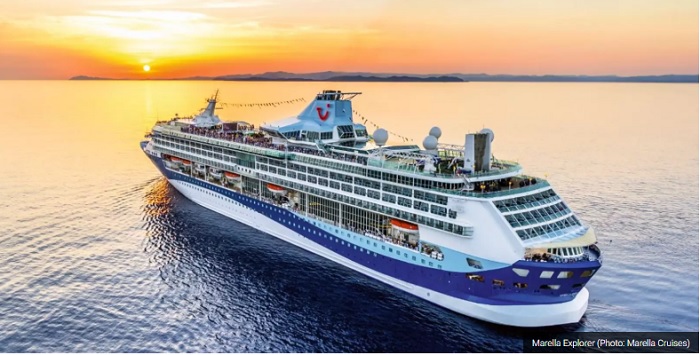After more than a year without cruises, it looks like vacations at sea may finally become available for U.S. residents in the Caribbean and elsewhere this summer as the COVID-19 pandemic continues.
But unlike before COVID-19, cruisers won’t be able to hop on ships in U.S. ports just yet. Instead, they’ll have to fly to the Caribbean if they want to cruise in June, July or August.
Several cruise lines are selling summer cruises to U.S. residents in the Mediterranean as well, though some still lack approvals from countries. There’s progress though: In late April, the European Commission announced it would allow American tourists who have been vaccinated to visit Europe this summer, though no timeline was given.
Here’s where ships are going plus advice on whether you can cruise safely.
IS IT SAFE TO CRUISE?
According to CDC recommendations, the answer is no.
As of early April, vaccinated people can safely travel domestically by air, according to the U.S. Centers for Disease Control and Prevention. But the health agency’s Level 4 warning — it’s highest — against cruise travel remains in place, citing the increased risk of getting COVID-19 on a cruise ship. The CDC recommends all people avoid travel on cruise ships worldwide.
Cruising in the Caribbean at this stage in the pandemic is “a bad idea,” according to Dr. Michael Callahan, director of the Clinical Translation, Vaccine and Immunotherapy Center at Massachusetts General Hospital, who worked on the Diamond Princess and Grand Princess COVID-19 evacuations last year. He’s particularly worried about COVID-19 variants emerging in the Caribbean and the potential for cruise travel to spread those variants to countries with low vaccination rates and testing and hospital capacity.
Though testing before travel and requiring vaccinations can reduce risk to cruise passengers and crew, the protocols do not create an immunity bubble, he said, noting that tests and vaccines will not block everyone who has the virus.
“Adding several partially effective steps to prevent infected passengers from boarding a cruise ship is not prevention, it’s risk reduction,” he said.
That said, cruise companies have announced new pandemic cruising protocols that passengers will have to follow. In addition, Caribbean countries have their own evolving COVID-19 testing and quarantine requirements for visitors.
What if I’m vaccinated?
If someone decides to take a cruise and is fully vaccinated, the CDC recommends they get a PCR test three to five days before the cruise. (Many countries require this; be sure to check.)
Dr. Mary Jo Trepka, an infectious disease epidemiologist and professor at Florida International University, said the number one way to lower the risk of getting COVID-19 on a cruise ship is to make sure everyone on board, both passengers and crew, is vaccinated. Still, the risk of getting COVID-19 in airport terminals while traveling to the ship and while on board remains. Other factors like the traveler’s underlying health conditions, the company’s mask requirements, and the vaccination and hospitalization rates in the countries the cruise will be visiting are all important to consider, too, she said.
“There’s nothing a pathogen likes more than a place crowded with humans,” she said. “It’s a question of what someone is willing to tolerate.”
Callahan recommends anyone considering taking a cruise this summer get fully vaccinated against COVID-19 with the Pfizer or Moderna vaccine within 60 days of boarding the ship and take an antibody test within the month before boarding. If possible, he recommends passengers make reservations for meals and onboard activities that include only the people in their travel group, and avoid mixing and mingling with people outside their group, especially in settings like multi-story promenades. He recommends passengers wear masks at all times outside their cabin and prioritize cruises to nowhere over cruises with port calls.

What if I’m not vaccinated?
If you’re not fully vaccinated, the CDC recommends getting a PCR test three to five days before the cruise; afterward, you should stay home for seven days even if you test negative.
If you’re not fully vaccinated and you don’t test prior to your sailing, the CDC recommends you stay home for 10 days after your cruise.
If someone recovered from COVID-19 in the last three months decides to cruise, they do not need to be tested or stay home unless they have COVID-19 symptoms.
CLICK HERE FOR FULL ARTICLE ON YAHOO NEWS


